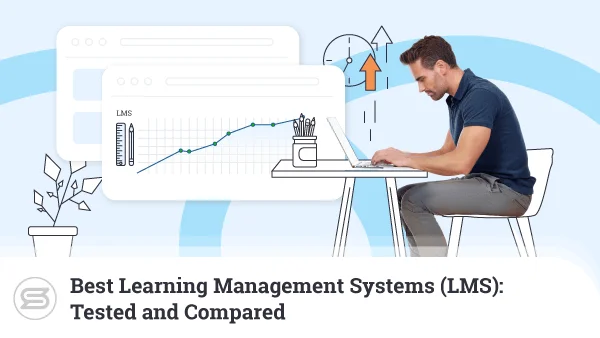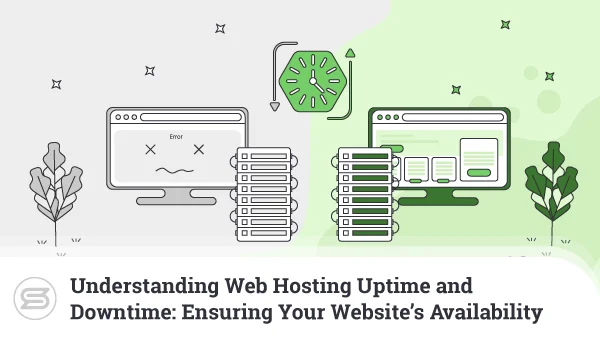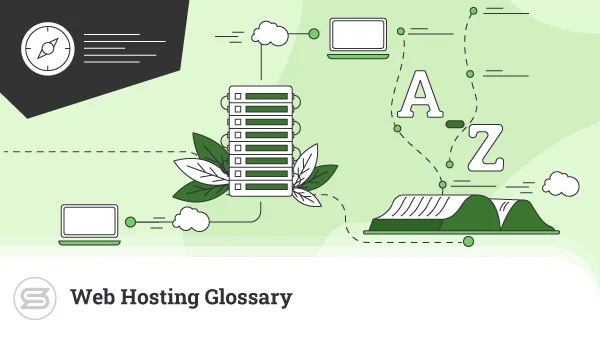Beyond the Price Tag: Assessing the Value of Managed Hosting Services
Managed or self-managed service – that is the question. Or at least it is in the hosting world. At first glance, the most obvious difference is the price tag. But that’s hardly the most important thing.
With managed hosting, users will be outsourcing the technical aspects of website management to industry experts so they can focus on their business. Yes, it may initially seem more expensive. However, we’re here to help you look beyond the price tag and learn about evaluating the value of managed hosting services.


Your Website with Entry Cloud
Here’s what you need to know:
Introduction to Managed Hosting Services
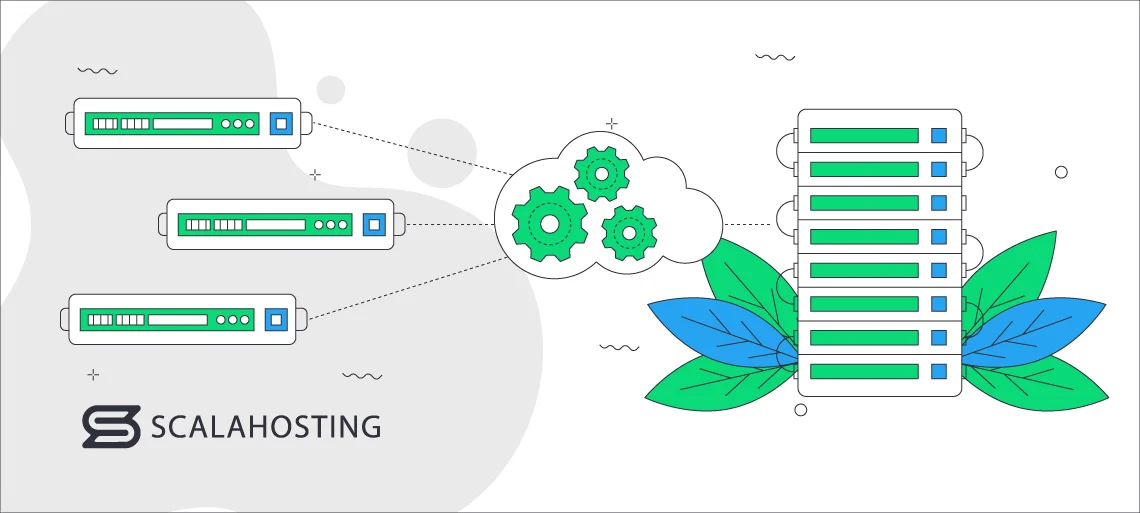
Managed hosting is a service that includes a team of experts who take care of the technical aspects of hosting a website or application. Basically, you delegate the responsibility of server management, maintenance, security, etc., to the support department of your hosting company.
The provider is also responsible for configuring and setting up the servers to meet the specific requirements of the client. This includes installing the operating system, web server software, and other necessary applications. With a managed service, the hosting vendor also takes care of the security of the server and its backups.
If you’re not particularly tech-savvy, this is a great way to skip the technicalities and focus on your business goals.
Key Features of Managed Hosting
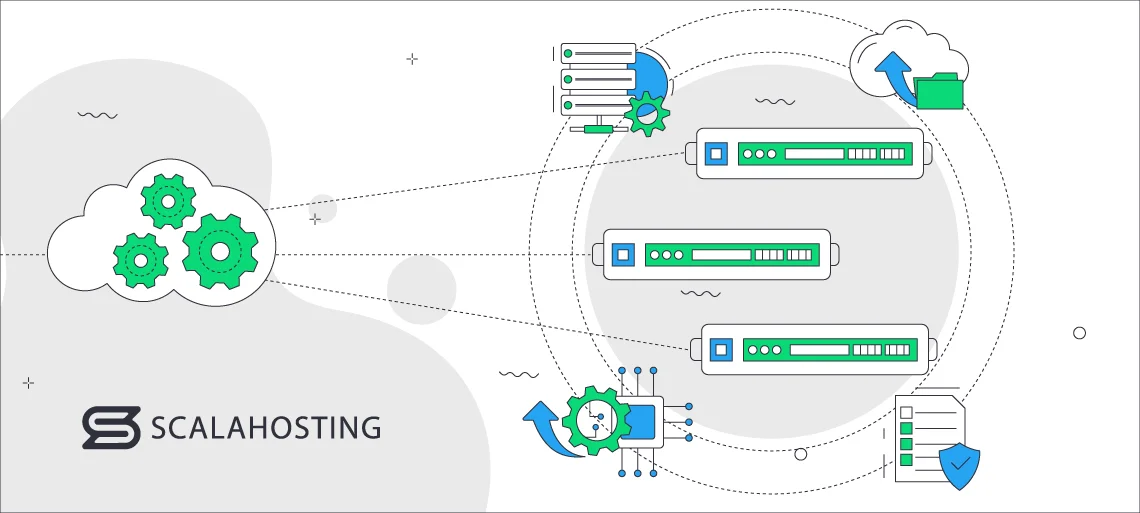
The key feature of managed hosting is the help you get from the provider’s tech team.
They will take care of:
- Server management – they will maintain and manage the physical hardware infrastructure, including servers, storage, and networking equipment. In addition, they will be the ones responsible for the server’s configuration.
- Safety audits and monitoring – the tech team will perform regular safety audits and keep an eye out for any issues with your server.
- Resource management – you will be notified when your project has outgrown its resource limitations and its time to scale.
- Updates and backups – the tech team will perform daily offsite backups and update the software frequently so that you won’t lose any valuable information.
In short, managed hosting helps your company website to operate seamlessly by having experts handle technical intricacies. With that burden off your shoulders, you’ll be able to properly focus on expanding your business.
Understanding the Total Cost of Ownership (TCO)
The Total Cost of Ownership (TCO) is a critical metric in evaluating hosting costs. It goes beyond the price tag and includes the time and effort invested in managing the environment.
The main things that affect the cost are:
- Initial setup
- Level of tech assistance
- System resources, such as CPU and RAM
- Migration costs
- Additional services (domain name, software installation, CDN)
- Bandwidth and data transfer
- Security features (SSL certificates, firewalls, spam protection)
- Scalability options
- Ecommerce features (if needed)
Managed hosting positively impacts TCO by еliminating the need to hire professional help. Providers can take routine tech tasks, allowing businesses to redirect their efforts toward other endeavors. This shift can lead to significant long-term savings.
Proactive Monitoring and Maintenance
There’s at least one thing your host can do that you won’t be able to do on your own – monitor your server 24/7. This enables the support team to respond swiftly to hacker attacks, hardware breakdowns, or arising issues. That, in turn, minimizes disruptions, averts potential revenue losses, and guarantees the security of your data.
Alongside monitoring, your vendor’s team will also help with server maintenance. This means your website will operate at peak performance, apps will be updated accordingly, and you’ll be notified if you’re close to any resource limits.
Thanks to managed hosting, you won’t have to hire someone to do all the monitoring and maintenance. It comes included in the price tag and saves you a lot of trouble in the long run.
Enhanced Security Measures
Thanks to the constant monitoring of managed hosting packages, any issues with your server will be detected as early as possible. That includes hacker attacks, DDoS attacks, spam activities, and many more. You will be notified immediately if your project is at risk. Your hosting provider will also perform security audits to ensure things are running smoothly.
Managed hosting services often include the firewall setup and management to control incoming and outgoing network traffic. Firewalls act as a barrier between the server and potential threats, blocking unauthorized access.
Reputable vendors also handle the SSL certificate (Secure Socket Layer) implementation and management for secure data transmission. They ensure that all data exchanged between the server and users is encrypted and safe from prying eyes.
Many hosting providers also offer additional services. For example, ScalaHosting’s packages come with SSHield – an AI-enhanced security tool that blocks 99.998% of the attacks aimed at your server.
The best part is that you can always contact the dedicated team and discuss additional security measures if needed.
Automatic Backups and Disaster Recovery
Regardless of your choice of service, backups and disaster recovery strategies are crucial for keeping your data safe. You can easily schedule automatic backups yourself from your hosting control panel. Make sure you set them during inactive hours so you can avoid any issues with your workflow.
A reputable hosting provider will offer daily offsite backups. Copies of your data will be stored on another server that is set in a different data center. You can always access them when needed.
That way, you can be sure that all your valuable info will be saved if issues arise. There’s nothing expected of you during the process – the hosting team will take care of it for you.
Disaster recovery planning specifies how quickly systems need to be restored, which is known as Recovery Time Objectives (RTO). The process will also help you set how much data loss is acceptable, the so-called Recovery Point Objectives (RPO). With a managed hosting service, you can rely on the support team to help you navigate both the RTO and RPO.
Scalability and Performance Optimization
Managed hosting allows businesses to grow seamlessly while maintaining optimal performance levels.
All trustworthy vendors will offer both vertical and horizontal scaling options. Vertical means you’ll be able to add resources such as CPU, RAM, and storage to meet growing demands. Horizontal scaling is the distribution of workloads across multiple servers. This approach is particularly effective in handling sudden spikes in traffic and provides a more resilient architecture.
Some managed hosting providers will also offer CDNs (Content Delivery Networks). They cache static content across multiple servers worldwide, reducing latency and accelerating content delivery to end-users.
Load balancing techniques provide redundancy, enhancing the overall reliability of the hosting environment. If one server fails, traffic is automatically redirected to healthy servers, minimizing downtime.
Customization and Tailored Solutions
Managed hosting services provide clients the necessary flexibility to tailor plans according to their needs. No matter what project you’re working on, you can customize a plan to fit your particular requirements and resource usage.
A good example is the operating system. Depending on the application requirements, some vendors enable clients to choose between Linux or Windows-based hosting. Users can also ask for specific apps and security protocols to be added.
They can customize hardware specifications as well. Those include server configurations, disk types, etc., to meet their performance and security requirements.
Another thing clients can tailor is backups. You can define frequencies, retention periods, and the type of data to be backed up.
Managed hosting providers can implement Role-Based Access Control (RBAC), allowing users to customize controls based on roles and responsibilities within their organization. This ensures that individuals have appropriate levels of access to server resources.
Compliance and Regulatory Benefits
Compliance and regulatory adherence are critical considerations for businesses, particularly those that handle sensitive data and operate in regulated industries.
Getting a managed hosting service means you can rely on the support team to point you to the necessary certifications that you need to obtain, such as:
- ISO 27001 – proving you adhere to international standards for information security management.
- GDPR – crucial for businesses operating or serving customers in the European Union; proves you’re implementing measures to protect the privacy and rights of individuals with regard to their personal data.
- Secure Socket Layer (SSL) or Transport Layer Security (TLS) – means you’ve taken the necessary actions to encrypt data in transit.
Managed hosting services also allow businesses to customize data retention policies for backups and other stored data. This ensures compliance with regulations that dictate how long certain types of data should be retained.
Your vendor can assist you with generating the necessary documentation and reports required for compliance audits. This includes detailing security measures, access controls, and incident response procedures.
Managed Hosting for Ecommerce
Еcommerce is one of the niches that benefits the most from managed hosting. Yes, even startups. This type of service takes the burden of the daily technicalities off your shoulders and leaves you with enough time to focus on expanding your online store.
The tech team can point you to ways to build both a high-performance and functional website. They can also assist you with adding payment methods, security apps, and the compliance standards you need to meet, such as PCI DSS for protecting payment card data.
There are some specific requirements of еcommerce content management systems, such as Magento, WooCommerce, PrestaShop, etc. Getting a managed service means your hosting environment will be optimized to support the unique demands of these platforms. You will also get assistance with them at all times of the day.
Signing up for managed hosting also guarantees that you’ll have a tailored environment that will fit your current needs and future growth plans. As there will be a team of experts keeping an eye on your resources, you’ll be notified in advance when it is time to scale.
Again, thanks to the 24/7 monitoring, you’ll know about any issues concerning your server. That also ensures better security and minimizes the risks of downtime, which is the biggest enemy of ecommerce stores.
In case the worst happens, hosting providers develop disaster recovery plans to ensure that ecommerce websites can quickly recover from disruptions. These outline strategies for restoring services and data so you won’t lose valuable info.
The combination of security, performance, and scalability ensures that your online business can operate efficiently, securely, and deliver a positive experience to customers.
Managed Hosting vs Self-Hosting
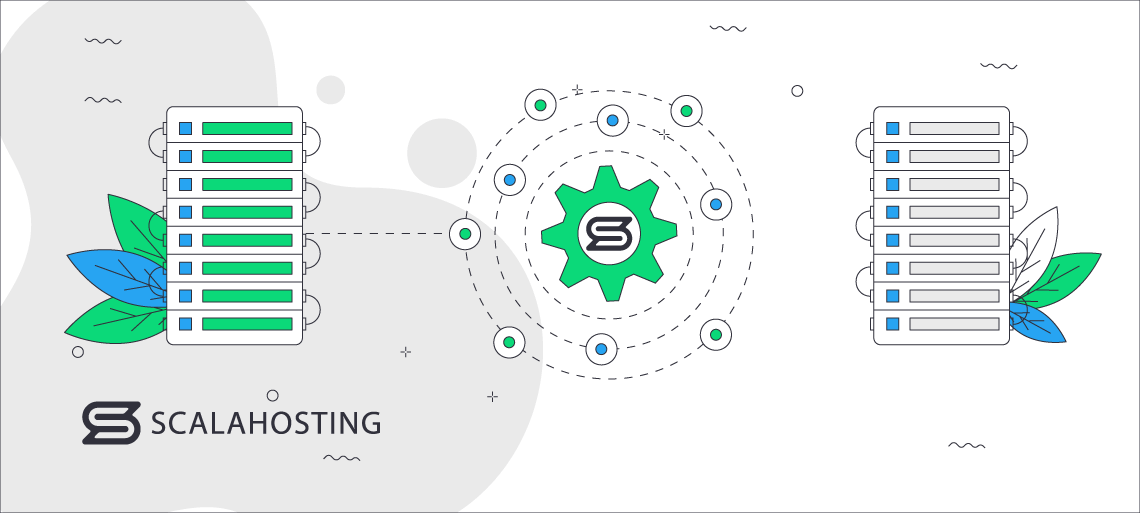
Now let’s discuss the burning question – managed vs. self-managed hosting, which is better?
Let’s start with the basics. With a managed service, the provider is responsible for managing the infrastructure, including server hardware, network, and data center facilities. Users do not need to worry about hardware maintenance, upgrades, or scalability. As a con, they get limited control over the underlying infrastructure.
Users who choose self-managed plans get full control over the infrastructure. However, they need in-house expertise for server management, including hardware maintenance, security, and software installations. The organization bears infrastructure costs and complexities.
Those on managed subscriptions get access to professional technical support around the clock. This means rapid response times, issue resolution, and expertise in server management. Companies and users that self-host are solely responsible for support, which can be resource-intensive.
Managed packages enable you to quickly allocate additional resources as needed. Hosting providers handle the infrastructure scaling process, making it convenient for businesses experiencing growth. However, your options are predefined by the vendor, and costs may increase with resource upgrades.
With self-hosting, you get complete control over scalability. As a downside, this requires proactive planning, expertise, and potential downtime during scaling activities. Costs will also increase with additional hardware and resources.
The support team on managed plans will be monitoring your server 24/7 and resolving any issues. They will notify you in case of hacker attacks or any other security problems. With self-hosting, you’ll be the one responsible for both the monitoring and the security sides of things.
To sum up, managed hosting provides a balance between control and convenience. You get to tailor your plan and rely on the help of a team of experts. Everything is set up for you to start working on your project right away.
Self-hosting gives you more freedom, as you’ll be the king of that castle. If you have the necessary tech knowledge, that is a great option to consider. However, it is very time-consuming, and you will have to invest more time and effort in the technical side of things.
Managed Hosting with ScalaHosting
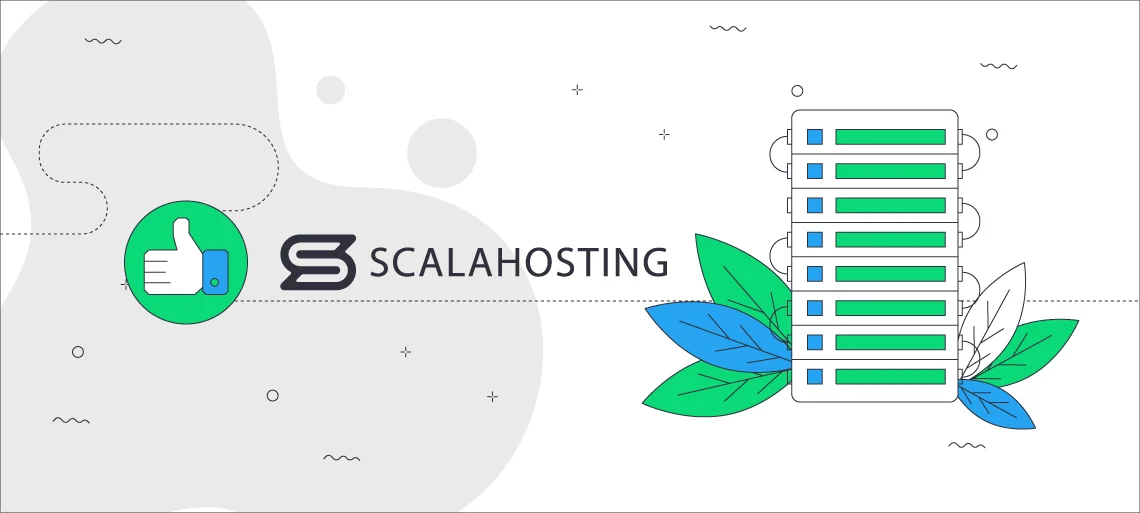
ScalaHosting has been in the industry for more than 15 years, which gave us enough time and expertise to develop the best managed hosting packages. Our solutions are flexible and customizable, enabling you to create the perfect environment for the growth of your project. We also integrate with all CDN platforms to ensure the smooth performance of high-traffic websites.
Each of our packages comes with the in-house developed SPanel – a web hosting control panel that will make managing your project a breeze. It is integrated with our AI-powered security tool – SShield, which stops 99.998% of attacks before they get to reach your server.
Of course, said server will be monitored 24/7 by a team of experts. They will also be performing daily offsite backups so that no data is lost. Copies of it get stored on a backup server in a different data center automatically to guarantee maximum safety. You can easily access your data when needed. In addition, all users get free Let’s Encrypt SSL certificates for each domain they host.
Once you sign up for a managed package, our experts will set it up for you so that you can start working immediately. You’ll be able to reach the support team 24/7 via chat and email, and they will assist you with all your hosting questions.


Still not sold on managed hosting?
No worries! Check out our self-managed hosting plans.
Contact us today to find out more!
Wrap Up
Managed hosting services have a lot of advantages – better security, next-level tech support, easier scalability, etc. But the biggest benefit for you is getting free time. With a team of experts taking care of your server and setting up the basics for your project, you will have more time to develop your business. If your goal is to grow – having a managed service is the way to go.
FAQ
Q: What is a managed hosting service?
A: A managed hosting service is a subscription option that includes technical assistance from the vendor’s support team. The provider not only supplies the server infrastructure but is also the one managing and maintaining it. The user can control and customize what happens on the server but can leave the technicalities to the experts.
Q: Is managed hosting worth it?
A: Managed hosting is definitely worth it, as it takes the burden of dealing with technical issues off your shoulders. You get a preinstalled operating system, support for adding new software, backups and security checks, etc. That way, you can focus on developing your business. It also minimizes the risk of rookie errors.
Q: Who needs hosting services?
A: Anyone who wants their website to reach a wide audience needs a reliable web hosting service. Using the services of a reputable vendor will guarantee that your site has enough resources and is secure enough so that you can grow your user base.

